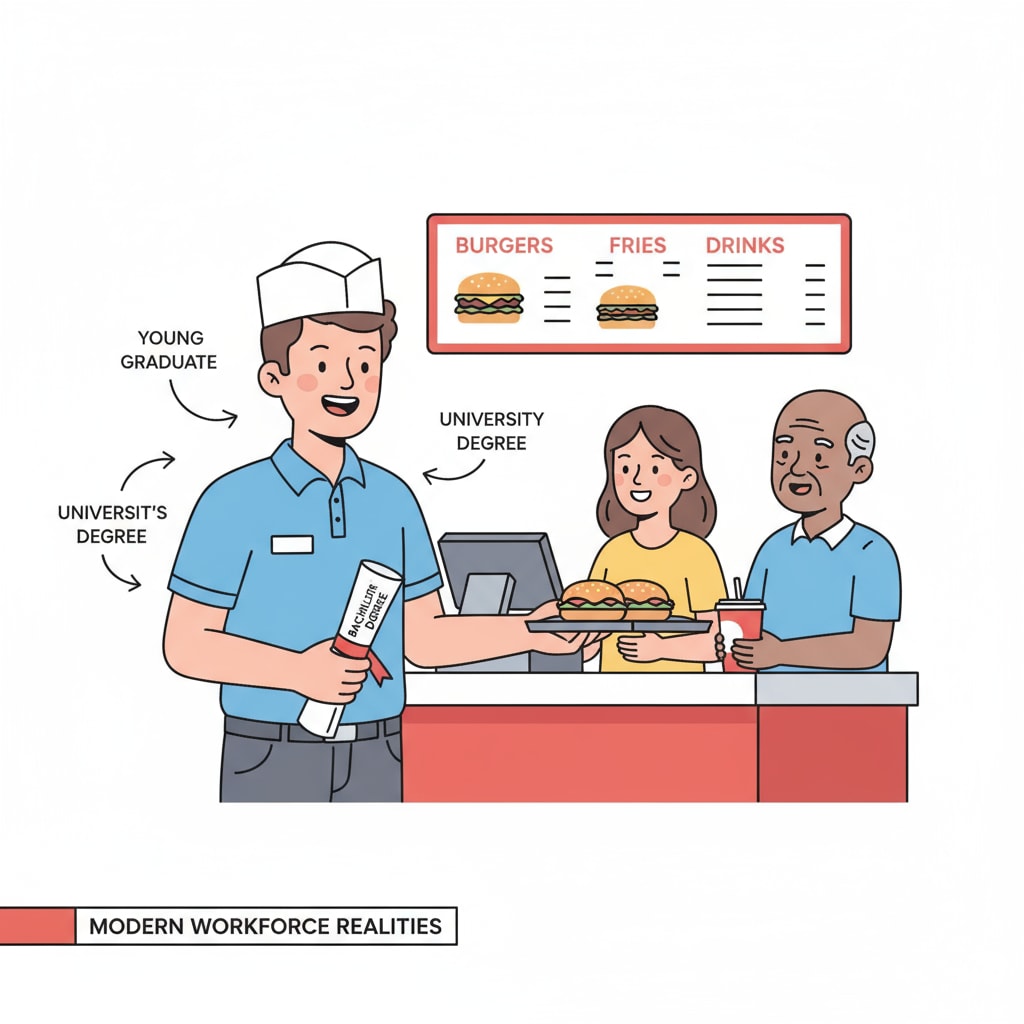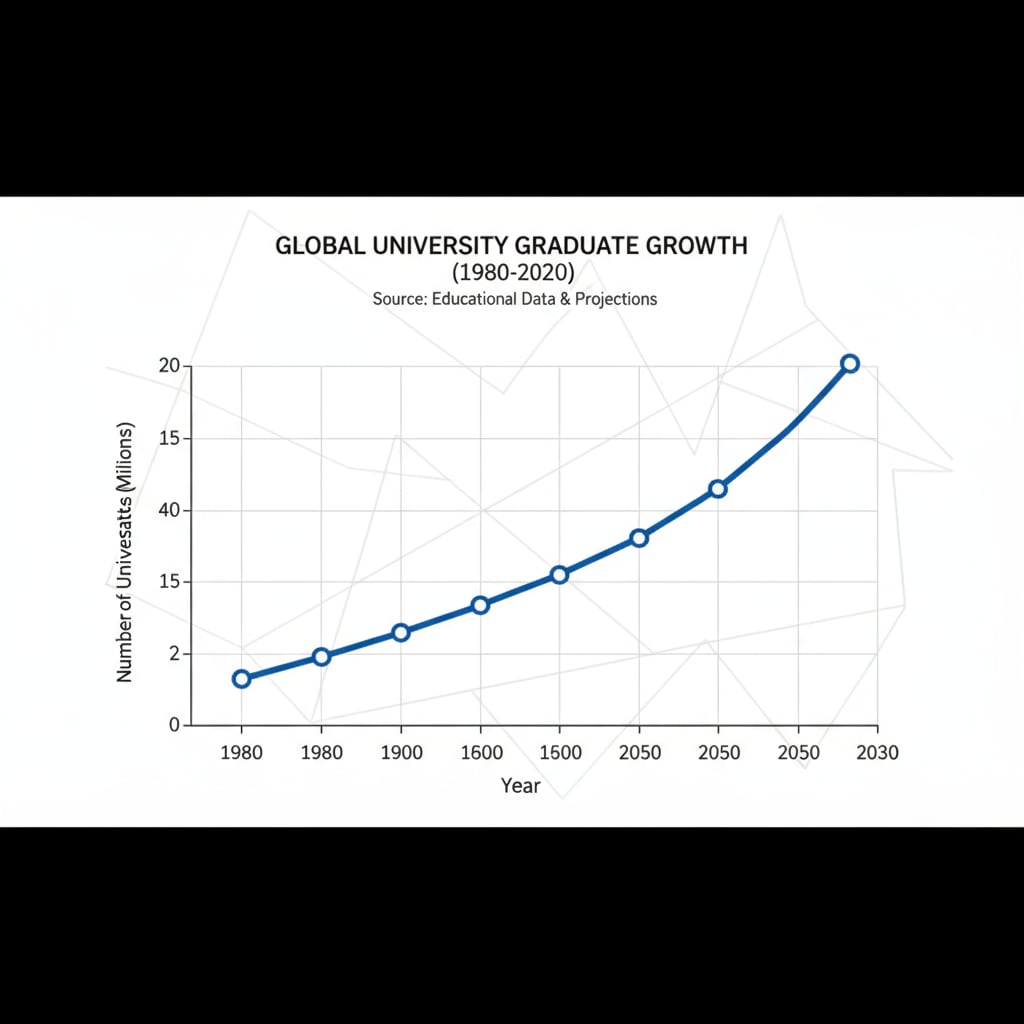In today’s job market, the once-coveted university degrees seem to be losing their luster, especially when we see them in the context of fast food jobs. The traditional perception of a degree guaranteeing a high-paying, prestigious job is being challenged.

As more and more individuals with university degrees find themselves in roles like those at fast food joints, it’s time to reevaluate the worth of these degrees.
The Changing Landscape of University Degrees
Over the years, the number of university graduates has been on the rise. According to data from the National Center for Education Statistics, the number of bachelor’s degrees conferred in the United States has increased steadily. This oversupply has led to a situation where degrees are becoming more common, and thus, less exclusive. For example, in the past, a bachelor’s degree was a ticket to a wide range of well-paying jobs. However, now, many graduates are struggling to find employment that matches their educational qualifications.

The Phenomenon of Degrees in Fast Food Jobs
It’s no longer a rare sight to see a person with a bachelor’s degree or even an advanced degree working at a fast food establishment. This could be due to various reasons. One factor is the lack of available jobs in their fields of study. Many graduates find that the job market in their chosen industries is highly competitive, and they are forced to take whatever job they can get. Additionally, some may realize that the skills they acquired in university are not directly applicable to the jobs they want, and fast food jobs offer immediate employment. As a result, we are witnessing a new trend where fast food jobs are filled with individuals who have invested years in higher education.
What does this mean for K12 education? K12 education needs to shift its focus. Instead of solely preparing students for university, it should also equip them with practical skills that are relevant in the job market. This includes skills like communication, problem-solving, and customer service, which are highly valued in fast food and many other industries. Moreover, K12 education should also expose students to different career paths, not just the traditional ones associated with university degrees. By doing so, students will be better prepared for the diverse job market they will enter.
Readability guidance: As we can see, the situation of university degrees in the job market, especially in relation to fast food jobs, is complex. We’ve used short paragraphs to break down the information. The lists and examples help to illustrate the points clearly. Transition words like ‘however’, ‘for example’, and ‘additionally’ have been used to make the flow smooth. And we’ve focused on presenting the key ideas in an easy-to-understand manner.


